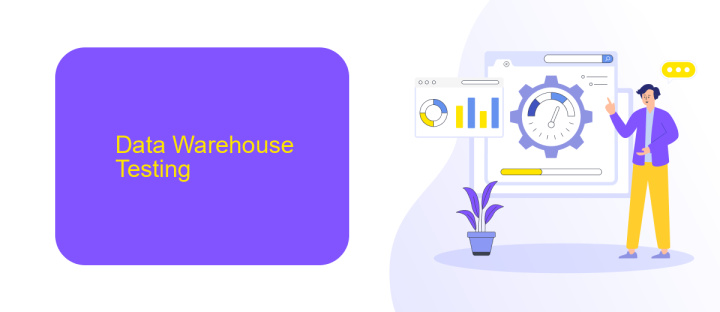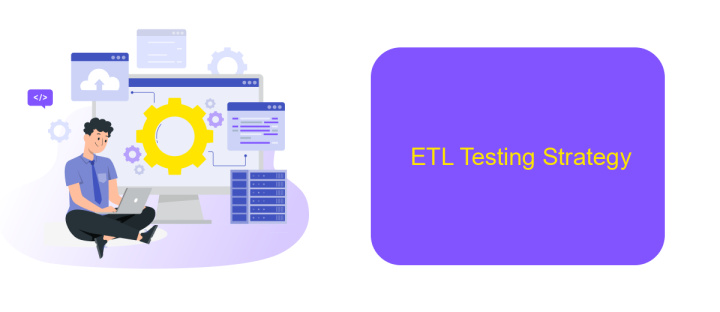ETL Data Warehouse Testing
ETL (Extract, Transform, Load) Data Warehouse Testing is a crucial process in ensuring the accuracy, reliability, and performance of data warehouses. It involves validating the data extraction from source systems, its transformation according to business rules, and loading into the target data warehouse. This article delves into the methodologies, tools, and best practices for effective ETL testing to maintain data integrity and quality.
ETL Overview
ETL, which stands for Extract, Transform, Load, is a crucial process in data warehousing that involves extracting data from various sources, transforming it into a suitable format, and loading it into a data warehouse. This process ensures that the data is accurate, consistent, and ready for analysis.
- Extract: Data is collected from multiple sources such as databases, APIs, and flat files.
- Transform: The extracted data is cleaned, formatted, and transformed to meet the requirements of the target data warehouse.
- Load: The transformed data is then loaded into the data warehouse for storage and analysis.
Effective ETL processes are essential for maintaining data integrity and reliability. Tools like ApiX-Drive can simplify the integration and automation of data flows between different systems, making it easier to set up and manage ETL processes. By automating these steps, businesses can ensure that their data warehouse is always up-to-date and ready for decision-making.
Data Warehouse Testing

Data Warehouse Testing is a critical phase in the ETL process, ensuring that the data stored in the warehouse is accurate, reliable, and consistent. It involves validating data extraction, transformation, and loading processes to ensure that data is correctly integrated from various sources. Key aspects of testing include data completeness, data transformation accuracy, data quality, and performance testing. Each of these areas requires meticulous planning and execution to identify and rectify any discrepancies or errors that may arise during the ETL process.
One of the challenges in Data Warehouse Testing is managing the integration of data from multiple sources. Tools like ApiX-Drive can be invaluable in this context, as they facilitate seamless integration and automation of data flows between different systems. ApiX-Drive allows testers to set up and monitor data pipelines efficiently, reducing the risk of errors and ensuring that data is consistently and accurately transferred. By leveraging such tools, organizations can enhance the reliability and efficiency of their data warehouse testing processes.
Testing Approaches and Types

ETL Data Warehouse Testing is crucial for ensuring data integrity, accuracy, and performance. The testing process involves various approaches and types to validate the ETL workflows and the data they produce.
- Unit Testing: This approach focuses on testing individual components or modules of the ETL process to ensure they function correctly in isolation.
- Integration Testing: This type tests the interaction between different ETL components and external systems, such as ApiX-Drive, which facilitates seamless data integrations.
- System Testing: This comprehensive testing approach validates the entire ETL process, from data extraction to loading into the data warehouse, ensuring end-to-end functionality.
- Performance Testing: This type assesses the speed and efficiency of the ETL processes, ensuring they can handle large volumes of data within acceptable time frames.
- User Acceptance Testing (UAT): This approach involves end-users to validate that the ETL processes meet business requirements and expectations.
By employing these diverse testing approaches, organizations can ensure their ETL processes are robust, reliable, and capable of delivering high-quality data to their data warehouses.
ETL Testing Strategy

Developing a robust ETL testing strategy is crucial for ensuring the accuracy and reliability of the data warehouse. The strategy should encompass various stages of the ETL process, including data extraction, transformation, and loading, to validate data integrity and consistency.
To begin with, it is essential to define clear testing objectives and select appropriate testing tools. These tools should be capable of automating repetitive tasks and handling large volumes of data. Additionally, incorporating a service like ApiX-Drive can streamline the integration process, making it easier to connect different data sources and automate data flows.
- Identify and document data sources and destinations.
- Define data quality rules and validation criteria.
- Develop test cases and scenarios for each ETL stage.
- Automate testing processes where possible.
- Monitor and log test results for continuous improvement.
Regularly reviewing and updating the ETL testing strategy is vital to adapt to evolving data requirements and technological advancements. By implementing a comprehensive and dynamic testing approach, organizations can ensure their data warehouse remains accurate, reliable, and efficient.
- Automate the work of an online store or landing
- Empower through integration
- Don't spend money on programmers and integrators
- Save time by automating routine tasks
ETL Testing Tools and Best Practices
ETL testing is crucial for ensuring data integrity and accuracy in data warehouses. Several tools can streamline the ETL testing process, including Apache JMeter, QuerySurge, and Talend. These tools help automate the validation of data extraction, transformation, and loading processes, ensuring that data is accurately transferred from source to destination. For instance, QuerySurge specializes in automated data validation and ETL testing, providing comprehensive data quality checks and detailed reporting capabilities. Talend, on the other hand, offers a robust suite of tools for data integration and quality, making it easier to manage complex ETL workflows.
Best practices in ETL testing involve thorough planning and execution. Start with a clear understanding of the data requirements and design test cases that cover all possible scenarios. Automate tests wherever possible to save time and reduce human error. Tools like ApiX-Drive can be beneficial for setting up integrations and automating workflows between different applications, enhancing the efficiency of your ETL processes. Regularly review and update your test cases to adapt to any changes in data sources or business requirements. Finally, ensure comprehensive documentation of all testing activities to maintain transparency and facilitate future audits.
FAQ
What is ETL in the context of Data Warehouse Testing?
Why is ETL testing important?
What are the common challenges in ETL testing?
How can automation be integrated into ETL testing?
What are the key components to focus on during ETL testing?
Do you want to achieve your goals in business, career and life faster and better? Do it with ApiX-Drive – a tool that will remove a significant part of the routine from workflows and free up additional time to achieve your goals. Test the capabilities of Apix-Drive for free – see for yourself the effectiveness of the tool.


